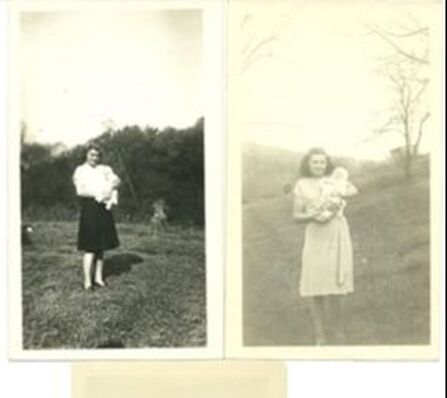 Have you ever heard of legacy writing? My friend Ann Haas is a Certified Legacy Writer/Facilitator and she teaches that legacy writing is something everyone should do. It includes things such as “last letters”. Ann’s favorite is Major Sullivan Ballou’s letter to his wife during the Civil War. Ann played this beautiful love letter at her husband’s memorial service. It’s from Ken Burn’s documentary The Civil War and is set to the music of Askhoken Farwell. Everyone can and should consider legacy writing and Ann, a retired Director of Clinical Social Work and Spiritual Care at Cleveland Clinic Akron General Medical Center, shares a summary of what legacy writing is, how and why to write a legacy document, and to whom. Some of her personal experiences are included in italics.
1. Here’s my definition of legacy writing: it helps us reflect on who we are, how we got here, who helped us along the way, how our values and character were formed, what mistakes we’ve made that influenced how our lives were impacted for good or ill, who we love and how we communicate this, for what we are grateful, for what we need to ask for or convey forgiveness, what we’d miss most in the world if we only had one day to live, how we want to be remembered, what blessings we wish to convey to family, friends, and future generations, and what life lessons we’ve learned so far and wish to pass along. 2. Legacy writing is timeless and can be started at any point in one’s life. I cite the 5-year-old boy who planned his own funeral and wrote his own obituary when he learned that he was not going to survive his third bout of childhood leukemia. Legacy writing is not only for the elderly or dying. As I learned from my recent lecture with family practice medical residents who wrote reverse bucket list stories, they had a life story already and didn’t realize it until this writing exercise. 3. Legacy documents are not considered legal documents but are a way to “bequeath” your values, share your life story, convey your traditions, life lessons, and blessings. Ethical wills, last letters, and other legacy documents are often included in estate documents. 4. Legacy writing:
5. Legacy writing reminds us of the “preciousness of life” – we never know how much time we have. This is a pop quiz I start my lectures with:
6. Types of legacy documents are: ethical wills, one or two page letters, “last letters” such a Randy Pausch’s Last Lecture or John McCain’s last letter to the nation, and blessings. One of the most endearing last letter experiences I had with a hospice patient was a grandmother who wrote 10 individual letters to each of her grandchildren about how special they were to her. After distributing them, she died peacefully a few days later. 7. I use these structured and open ended questions to prompt legacy stories:
 Family photos guiding Ann's Legacy Writing Family photos guiding Ann's Legacy Writing 8. I encourage participants, especially those who do not have children, that their legacy is important to many in their lives: siblings, husbands, friends, colleagues, and nieces/nephews. I do not have children, so I have written legacy letters to my great niece and nephew so that they know about our maternal and paternal family history, who I am, and to whom they are connected. 9. I have written blessings for my community which is another form of legacy writing to remind us of how to address and conduct dialogue about our commonalities as well as our differences which can lead to healing. 10. Lastly, legacy documents differ from memoir writing in that the former is private and not for public consumption, whereas memoirs are usually published for a public audience. However, events portrayed in legacy documents can be used as prompts for actually writing a memoir. I’ve often thought of May 4, 1970, as a huge memoir prompt about how events that day changed by life. You can learn more about Ann and legacy writing here: https://www.life-legacies.com/facilitators/Ohio.html You can also read one of Ann’s short stories in the new anthology Real Women Write: Growing / Older: Sharing Stories, Sharing Lives in Prose and Poetry from Story Circle Network . Next time: A Most Memorable Pandemic
Ann Otto writes fiction based on factual as well as oral history. Her debut novel, Yours in a Hurry, about Ohioans relocating to California in the 1910’s, is available online at Amazon, Barnes & Noble, and Kindle. Her academic background is in history, English, and behavioral science, and she has published in academic and professional journals. She enjoys speaking with groups about all things history, writing, and the events, locations, and characters from Yours in a Hurry and her current projects, which include a novel about Ohio’s Appalachia in the 1920’s and a compilation of her father’s World War 2 letters. She blogs about history and writing and can be reached through the website, https://www.ann-otto.com/ , or at Facebook@Annottoauthor and www.Goodreads.com
1 Comment
Marjorie Kildare
6/8/2020 02:29:31 pm
Ann,
Reply
Leave a Reply. |
Archives
August 2020
Categories
All
|
 RSS Feed
RSS Feed